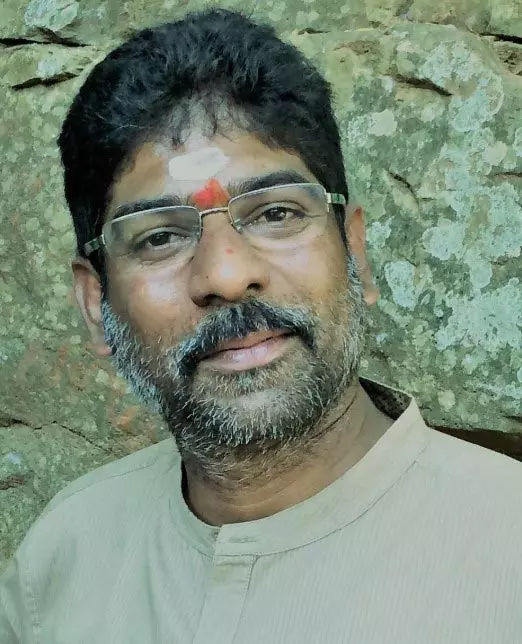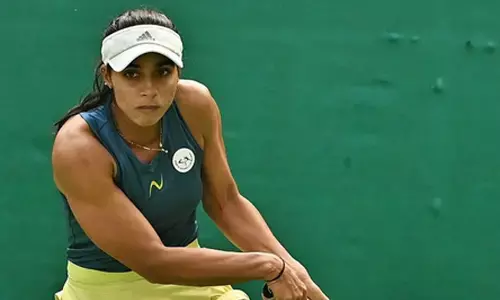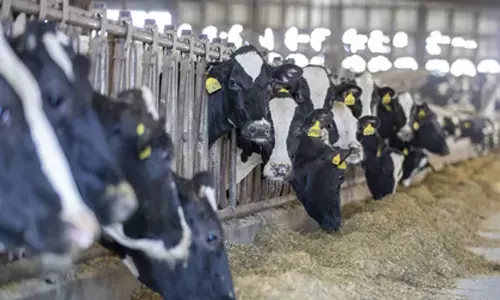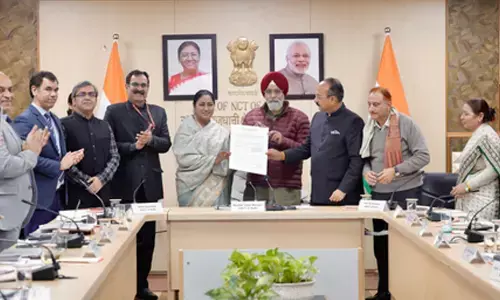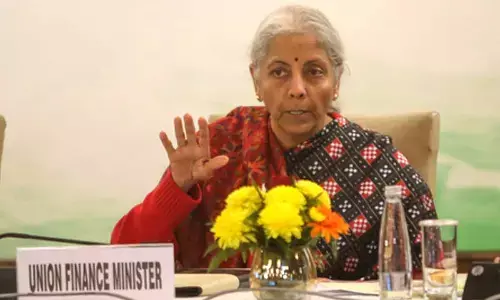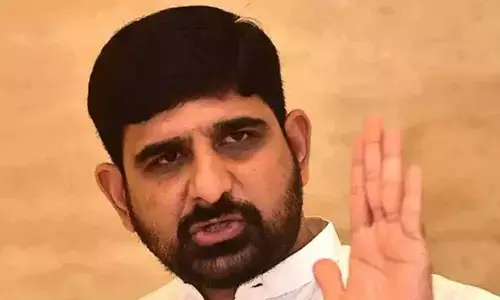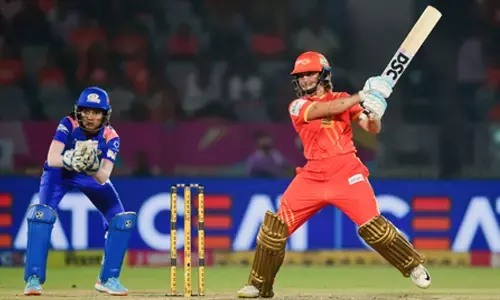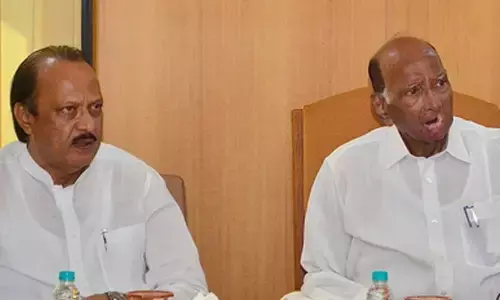PIOs to rule roost in White House
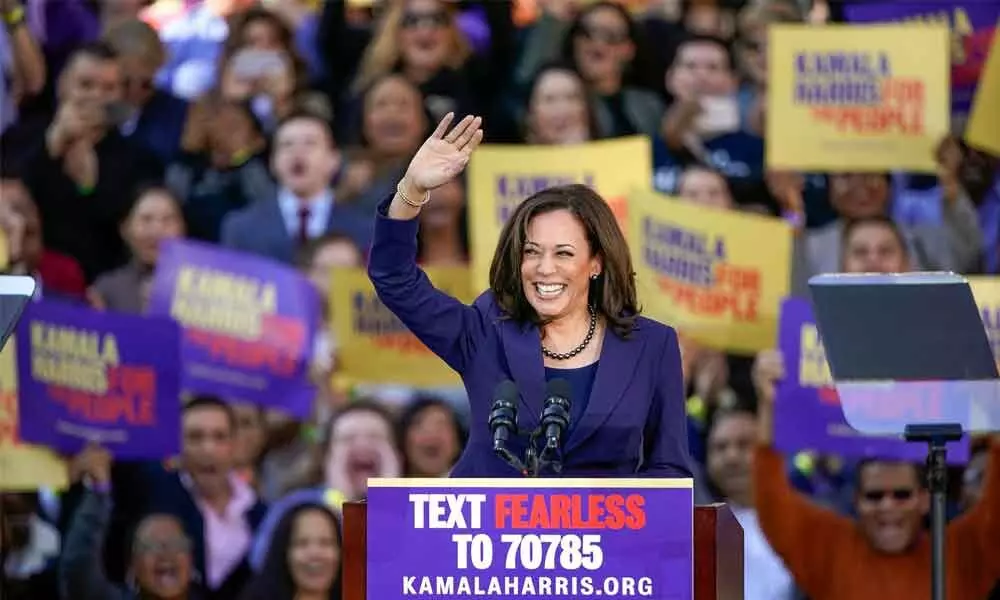
Americans’ Indophilia has a long history. Ever since the famous Italian explorer Christopher Columbus, in his pursuit for India way back in 15th century, landed in America, the names of the two largest democracies in the world have been linked
Americans' Indophilia has a long history. Ever since the famous Italian explorer Christopher Columbus, in his pursuit for India way back in 15th century, landed in America, the names of the two largest democracies in the world have been linked. However, hidebound Republicans apparently detested Indians and Indian culture and encouraged racist pigs to ridicule, offend and often assault Indian immigrants in the US.
Leaving that apart, liberal Americans' love for Indian culture was evident in the works of renowned writers including Ralph Waldo Emerson, Henry David Thoreau, Walt Whiteman and others. India's great spiritual philosopher Swami Vivekananda's electrifying speech at the World Parliament of Religions in Chicago in 1893 received standing ovation for several minutes and still remain a landmark in India's cultural history. Enchanted by his erudition, Harvard University offered him the chair of Oriental Philosophy, and the University of Columbia the chair of Sanskrit.
Rabindranath Tagore, Mahatma Gandhi and Jawaharlal Nehru had thousands of admirers in the US. In fact, Mahatma Gandhi's emphasis on non-violence and his unique method of fighting British rule through Satyagraha attracted attention of the American people. US leaders like Woodrow Wilson and Franklin Roosevelt were great inspiration for Indian freedom fighters.
Things have come a long way since then and today White House has many heavyweights with Indian roots. Kamala Devi Harris, Vivek Murthy, Gautam Raghavan, Mala Adiga, Vinay Reddy, Bharat Ramamurti, Neera Tanden, Celine Gounder, Atul Gawande… and the list is long. They are – almost two dozen of them –going to be part of the inner circles of the White House' A-team.
Republican Senator David Perdue, a trusted aide of outgoing President Donald Trump, laughed at the name of Kamala Harris just ahead of presidential elections on November 3 last year apparently with the impression that the Indian-origin Vice Presidential candidate might never make it to the mighty White House, but had to sit baffled as his derisive remarks on the Indian name of one of the most powerful woman in the country led to a mammoth fundraising in Georgia.
In what comes as a historic development in American history, two dozen Indian names make it to the who's who of the White House. Unable to digest the hard realities happening around, a violent mob, ardent supporters of power-hungry and warmongering Trump, attacked the Capitol building in Washington DC on January 6, making a mockery of democracy while Democratic party led by Joe Biden and Kamala Harris had won both the Georgia Senate seats, thus transferring America's balance of power to the hands of Democrats.
When Joe Biden and Kamala Harris were administered the oath of office, they were in fact ushering in a new era in American politics, where the team of a steady mix of Indian Americans were being build up in the commanding corridors of the White House. The members of the team have inspiring success stories across a wide range of subject matter expertise including medicine, economics, digital communications and storytelling.
It sounds like you are in Indian Parliament as these names are so Indian - Gautam Raghavan, Vivek Murthy, Mala Adiga, Vinay Reddy, Bharat Ramamurthi, Neera Tanden, Celine Gounder.
Jokes are doing round in American political circles as to how to pronounce these names properly. However, these leaders with Indian lineages are proud of their names. Kamala Harris, in her memoir 'The Truths We Hold' rightly put it like this: "First, my name is pronounced "comma-la", like the punctuation mark. It means "lotus flower". which is a symbol of significance in Indian culture. A lotus grows underwater, its flower rising above the surface while its roots are planted firmly in the river bottom."
It may be remembered that during the Democratic National Convention in August 2020, Kamala Harris introduced herself to America in these words, "There's another woman, whose name isn't known, whose story isn't shared. Another woman whose shoulders I stand on. And that's my mother - Shyamala Gopalan Harris."
However, these changes, for Indian diaspora, are most hearty ones. Over the years, they have been facing the wrath of white racists silently as the Republican leaders are high on hatred of browns and blacks. There have been reports of several attacks on Indians, some fatal, by haters of Indians. There was even a group of fanatics called Dotbusters, referring to bindi worn by Hindu women on their foreheads.
The loathing may be because the Indian-Americans are the highest-earning ethnic group in the United States. Indianness is very much visible in the US streets – people, food, festivals and culture. And the amount of bigotry is such that in February 2017, the house of an Indian man in Colorado, was egged, smeared with dog faeces and vandalised with racist slogans.
And we cannot forget the brutal murder of a man from Telangana Srinivas Kuchibhotla by a rogue racist and a navy veteran in a bar in Kansas. The 30-two-year-old aviation engineer shot dead while his colleague Alok Madasani managed to survive. Just within a fortnight, a Sikh man was attacked outside his home in Kent, Washington, while he was washing his car.
It may be remembered the outgoing President's nationalistic rhetoric actually triggered panic among immigrants. It can't be a strange coincidence that those Indians who supported Trump in the run-up to the 2016 election were a motley group right-leaning American Hindus who heaped generous donations and conducted elaborate prayer ceremonies to placate the gods in favour of the Republican chauvinist. They belonged to the same clan of Indians with Hindutva agenda back home in India who perceive Islam as their enemy.
It is true that due to their divergence of security and strategic interests, both India and the United States have expressed serious differences on several international issues, but history has a lot to say about the respect and camaraderie the leaders of both the nations shared since centuries.
During the time of John F Kennedy, Indo-US relations became very cordial. His successor, President Johnson continued the rapport by setting up the Tarapur Atomic Plant and by supplying a large quantity of food grains to enable India to fight over the acute shortage caused by the severe drought in 1966-67. In 1978, President Carter paid a goodwill visit to India to register and restore American sympathy and amity for India.
Two Indian Americans — Har Gobind Khorana of the Massachusetts Institute of Technology and Subrahmanyan Chandrashekhar of the University of Chicago — have been awarded the Nobel Prize, in medicine and physics respectively. In fact, NASA's premier X-ray observatory is named after Subrahmanyan Chandrasekhar - the Chandra X-ray Observatory.
And, in 1997, Dr Kalpana Chawla became the first Indian American to fly in the US space shuttle, adding a new glittering chapter to the history of the Indian American community. More recently, Indian American astronaut, Sunita Williams, achieved the world record for the longest space flight by a female astronaut, 195 days.
Indian music, dance, art, literature cuisine, and films are widely appreciated by Americans. The brains behind the major development in the fields of science and technology in America today undoubtedly are the ones who flew down from the land of unity and diversity. Yes, now they are having a say in American politics too!

